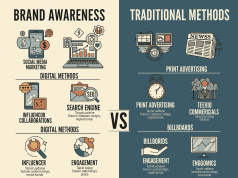The landscape of advertising technology (AdTech) is undergoing a seismic shift. With increasing consumer skepticism, stringent privacy regulations, and evolving digital ecosystems, traditional advertising methods are being questioned. In this climate, innovative startups are emerging to disrupt the status quo, challenging established giants and redefining how brands connect with consumers.
The Changing Landscape
Consumer Privacy and Regulation
In recent years, consumer privacy has taken center stage. Regulations like GDPR (General Data Protection Regulation) in Europe and CCPA (California Consumer Privacy Act) in the U.S. have forced brands to rethink their data collection strategies. Consumers are more enlightened about their data rights, demanding transparency and control. This shift has created fertile ground for startups that prioritize privacy-centric solutions.
The Move Towards Personalization
Personalization has become a buzzword in marketing, but traditional AdTech often overlooks genuine user engagement in favor of cookie-cutter approaches. Startups are rising to the challenge, employing AI and machine learning to create highly granular audience segments that facilitate tailored advertising experiences, increasing relevance and engagement.
Notable Startups Shaping the Future
1. Impact.com
Impact.com is revolutionizing partnership management by providing a platform that enables brands to track and optimize their partnership relationships. The startup focuses on performance-based marketing, allowing brands to work directly with affiliates, influencers, and partners. This model ensures greater transparency and efficiency in advertising spend.
2. Teads
As video content continues to dominate digital marketing, Teads is differentiating itself with a unique approach to outstream video ads. Their platform enables the placement of video ads in editorial content, ensuring enhanced user engagement and maintaining a non-intrusive experience. This strategy aligns with the rising demand for quality content and contextually relevant advertising.
3. Clarivoy
Clarivoy is changing how companies measure the effectiveness of their advertising. By focusing on the consumer journey, the startup uses advanced attribution models to track conversions more accurately across multiple channels. This technology allows brands to identify the true impact of their marketing efforts, leading to better budget allocation and strategy refinement.
4. Lumen
Lumen is leveraging heatmap technology to provide insightful data about where users focus their attention on digital ads. By analyzing gaze patterns, Lumen helps brands optimize ad placements for maximum visual engagement. This data-driven approach promises to enhance campaign effectiveness while ensuring that viewers receive ads that align with their interests.
5. The Trade Desk
While not a startup in the traditional sense, The Trade Desk has been at the forefront of the programmatic advertising revolution. With its emphasis on data-driven decision-making and transparency, The Trade Desk empowers advertisers to buy and manage digital advertising campaigns effectively across various channels. It serves as a beacon for startups looking to navigate the intricacies of programmatic advertising.
Challenges Ahead
While the innovation happening in the AdTech space is promising, new startups face significant challenges:
Competition: Established players have deep pockets and extensive networks, making it difficult for startups to gain market share.
Integration: As technology rapidly evolves, startups must ensure their solutions integrate seamlessly with existing systems and remain agile in response to industry changes.
- User Trust: Building trust with consumers is paramount, especially given the growing concerns about data privacy and user consent.
Conclusion
The AdTech disruption is real, and startups are leading the charge. By focusing on consumer privacy, personalized experiences, and innovative technologies, they are creating a new paradigm for advertising. While challenges lie ahead, these startups exemplify the agility and creativity required to thrive in an increasingly complex marketing landscape. As we journey further into this digital age, the future of advertising will likely be shaped by these bold disruptors, paving the way for more responsible and effective engagement between brands and consumers.









